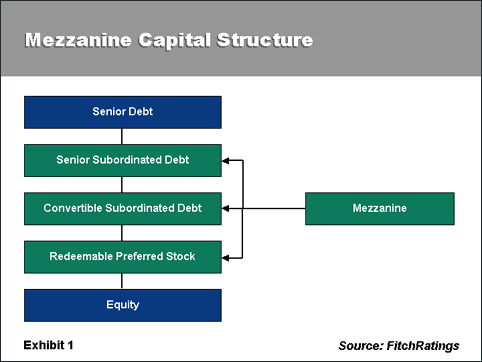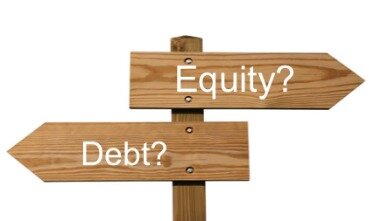Content

They can also grant you access to new connections and networking. Relatives and associates – Investments from a private investor. These are typically small payouts in exchange for a small stake of the company.
If they want to loan you money for your business, then that is quite different and is actually considered debt financing. Debt financing means borrowing money in order to acquire an asset. Using debt financing allows the existing stockholders to maintain their percentage of ownership, since no new stock is being issued. However, the additional debt adds risk and may result in higher interest rates for future loans.

Some businesses prefer to take out a loan rather than give up equity to investors. But others appreciate the fact that equity financing doesn’t have to be paid back the way debt does.There are pros and cons to both equity financing and debt financing. Review the highlights of each carefully to make your decision about what’s best for your startup. If you need cash as soon as possible, then debt financing is the way to go. You can get business loans incredibly fast — in a matter of hours even, if you apply to the right lenders.
Business Finances
They own the part of the business and wants to make money from it. It can even lead to you being replaced by your partners if you don’t retain enough board seats and voting power. Good equity partners can also make it much easier to secure more attractive debt later on. Convertible notes are, in my mind, the fastest and cheapest way to fundraise.
Accordingly, a business is limited as to the amount of debt it can carry. Because the lender does not have a claim to equity in the business, debt does not dilute the owner’s ownership interest in the company. Even if you’re looking into early-stage investors, they’ll often look to spend $300,000 or more — in return for as much as 50 percent equity. But if you could use more cash, like hundreds of thousands or even millions, then again, either debt or equity could be right for you. However, if you’re not in a big hurry, either option can work for you.

The terms of the agreement should be agreed upon and documented properly. This method of financing is better for larger companies with the potential to generate high revenue such as tech companies.
The main advantage of debt financing is that a business owner does not give up any control of the business as they do with equity financing. Companies usually have a choice as to whether to seek debt or equity financing. The choice often depends upon which source of funding is most easily accessible for the company, its cash flow, and how important maintaining control of the company is to its principal owners.
A venture capitalist is an entity, whether a group or an individual, that invests money into companies, usually high-risk startups. In most cases, the startup’s growth potential offsets the investor’s risk. In the long run, the venture capitalist may look to buy the company or, if it’s public, a substantial portion of its shares. When it comes time to pay taxes, you can deduct debt financing interest payments from your taxable income to save money.
Debt Vs Equity Financing: Pros And Cons For Entrepreneurs
An interest rate refers to the amount charged by a lender to a borrower for any form of debt given, generally expressed as a percentage of the principal. The information contained herein is of a general nature and is not intended to address the circumstances of any particular individual or entity. No one should act upon such information without appropriate professional advice after a thorough examination of the particular situation.
This form of debt financing is a loan from an alternative lender that is repaid from a portion of your credit and debit card sales. Note that merchant cash advances have notoriously high annual percentage rates . Equity financing involves selling a portion of a company’s equity in return for capital. For example, the owner of Company ABC might need to raise capital to fund business expansion. The owner decides to give up 10% of ownership in the company and sell it to an investor in return for capital. That investor now owns 10% of the company and has a voice in all business decisions going forward.
Best Mortgage Refinance Of 2021
When a firm raises money for capital by selling debt instruments to investors, it is known as debt financing. In return for lending the money, the individuals or institutions become creditors and receive a promise that the principal and interest on the debt will be repaid on a regular schedule. Once you pay the loan back, your relationship with the financier ends. Finally, it is easy to forecast expenses because loan payments do not fluctuate. They need a strong management team, a business plan that is likely to generate a good return and the ability to sell the concept.

Equity financing is the process of raising capital through the sale of shares in a company. With equity financing comes an ownership interest for shareholders. Equity financing may range from a few thousand dollars raised by an entrepreneur from a private investor to an initial public offering on a stock exchange running into the billions.
Benefits Of Debt Financing
A dividend is a share of profits and retained earnings that a company pays out to its shareholders. When a company generates a profit and accumulates retained earnings, those earnings can be either reinvested in the business or paid out to shareholders as a dividend. The cost of debt is the return that a company provides to its debtholders and creditors. Cost of debt is used in WACC calculations for valuation analysis. Debt vs Equity Financing – which is best for your business and why?
- With equity, you again have no interest expense, but only keep 75 percent of your profits, thus leaving you with $3,750 of profits (75% x $5,000).
- Gain the confidence you need to move up the ladder in a high powered corporate finance career path.
- Investors prefer equity because the price of the stock can rise considerably, giving a good return on their investments.
- Even if that is only to multiply what is working or to create a source of emergency capital.
With traditional types of debt financing you are not giving up any controlling interests in your business. You get to make all the decisions, and keep all the profits. At some point we’ve all probably at least had a student loan, signed up for a mobile phone contract, had a credit card, or an auto loan or lease. Often, you will have to repay in monthly installments, over a fixed period of time, at a predetermined rate. Though this can vary depending on whether you are raising debt from investors, are using lines of credit or working capital loans, or even new hybrid convertible notes. As a business takes on more and more debt, its probability of defaulting on its debt increases.
Starting A Business With No Money? Here’s How To Do It
When you’re debating debt financing versus equity financing, it really comes down to what your startup needs. In addition to working capital, are you looking for guidance and connections you don’t currently have? Would you rather run the business on your own, even if it means taking on debt? Equity financing is selling a percentage of your business to an investor in exchange for funding. The investor will receive a portion of the profits, depending on how much stock they hold in the company. Typically the more money you ask for, the larger the stock will be.
Investors usually take on most of the early risk of starting a new business. Some contracts may have increasing interest rates over a period of time. Merchant Cash Advance – Businesses that receive a majority of their income from credit cards allow lenders to take a daily percentage of credit card earnings. Product and service reviews are conducted independently by our editorial team, but we sometimes make money when you click on links. Financing is the process of providing funds for business activities, making purchases, or investing. Rate discounts available when paired with one of our online high yield money market or savings accounts. To find out more about how we make money and our editorial process, click here.

